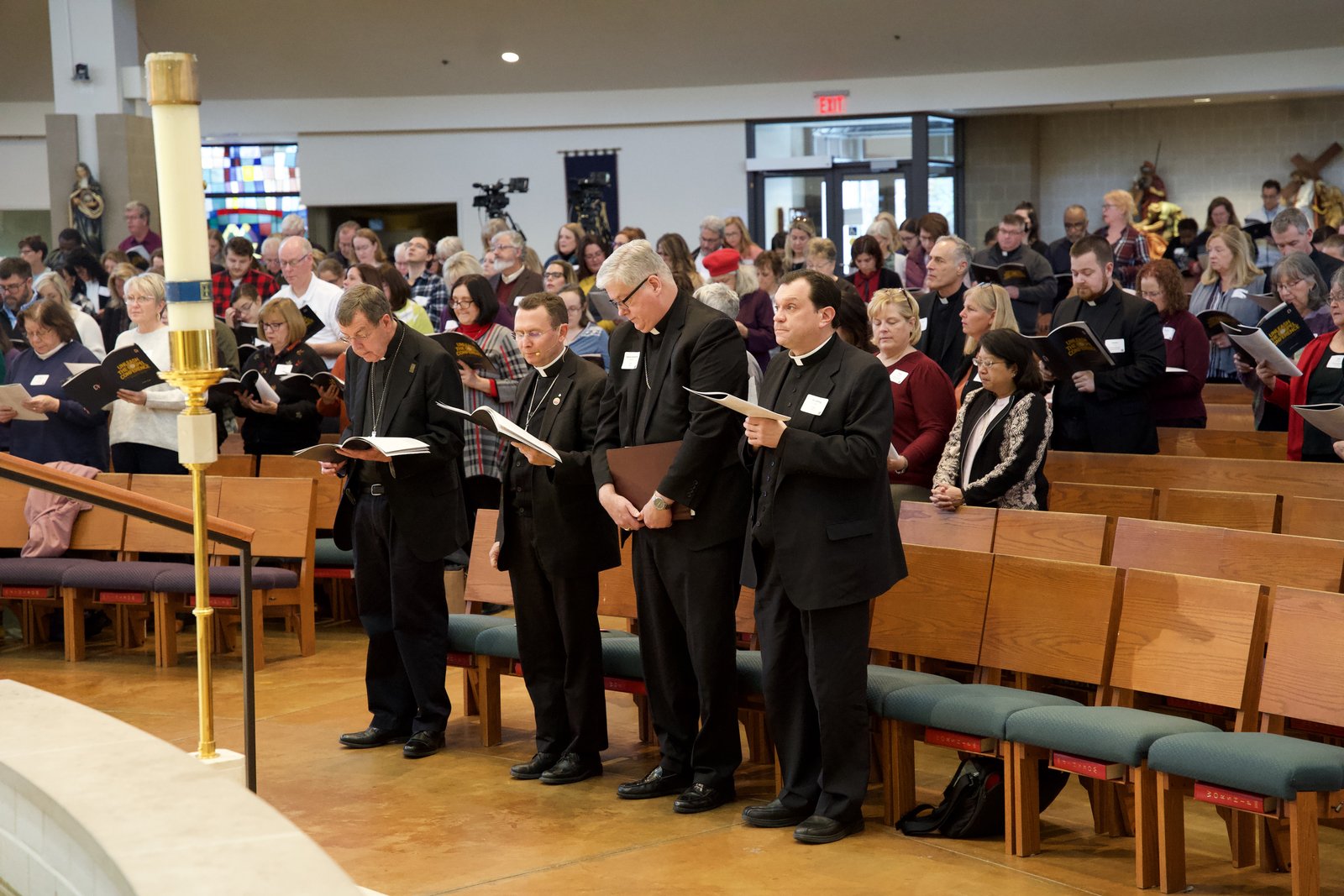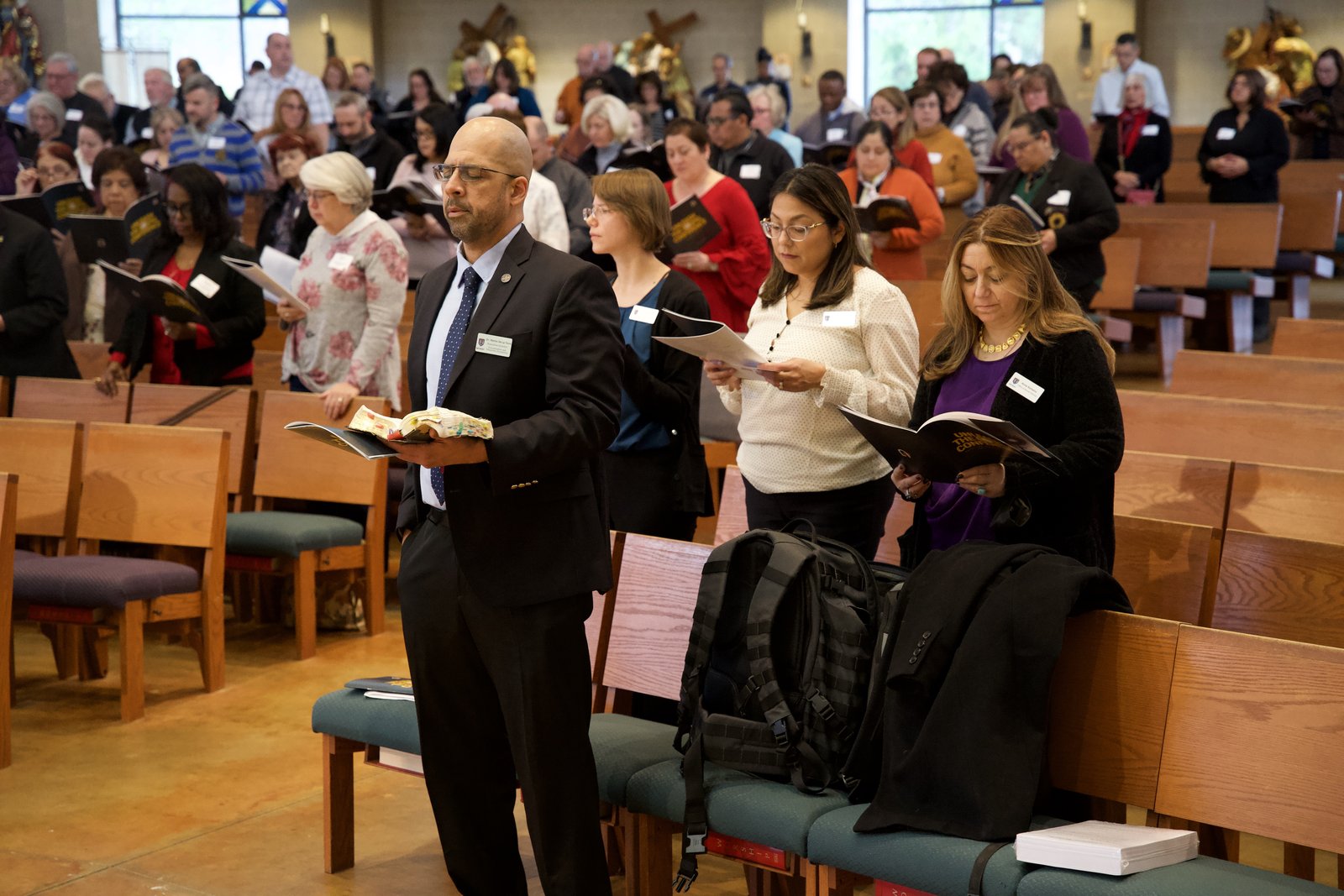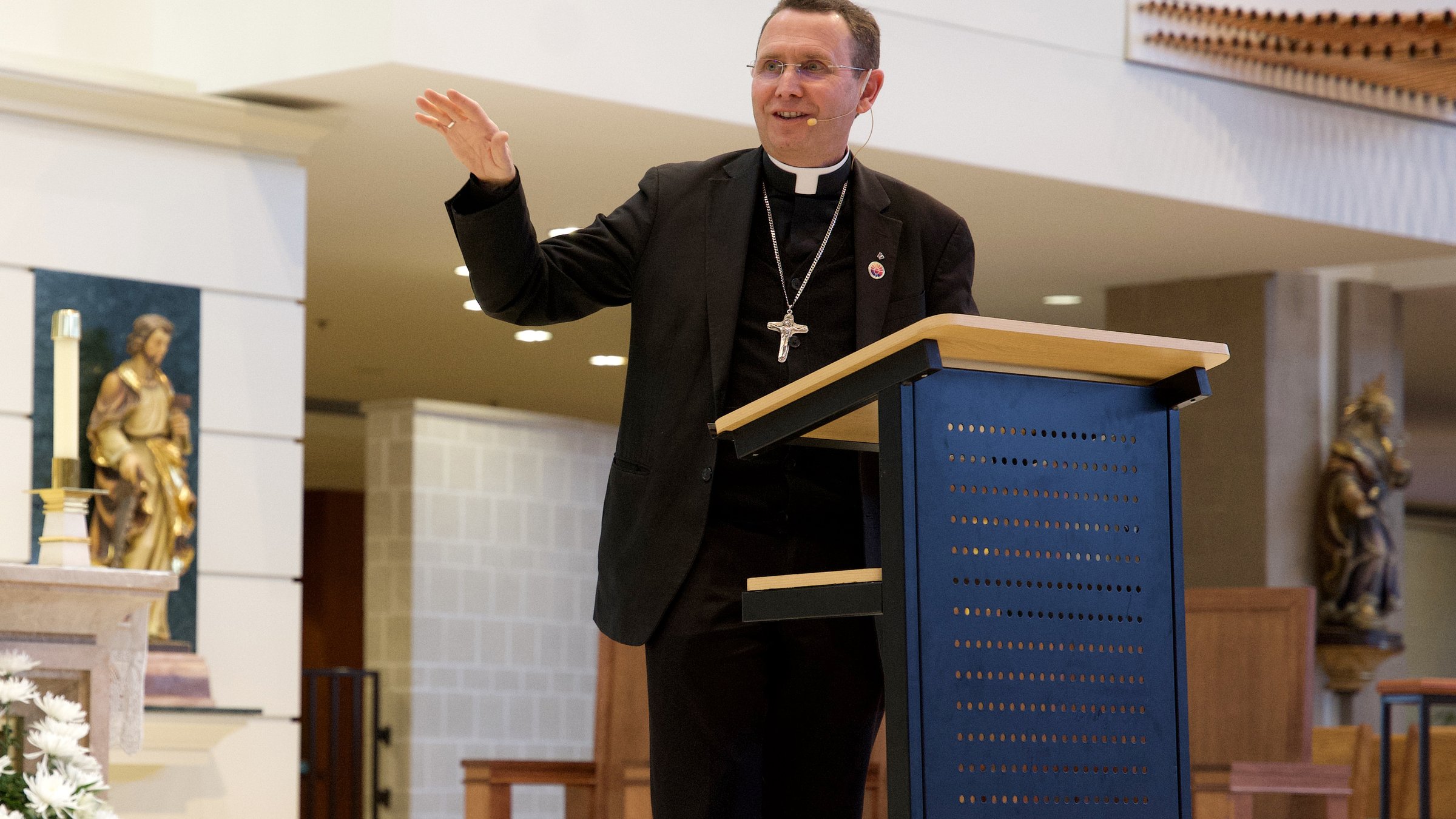Leader of U.S. bishops' National Eucharistic Revival gives keynote during annual conference for Detroit parish leaders, clergy
PLYMOUTH — Church leaders and staff from across the Archdiocese of Detroit came together Friday, Nov. 18, at Our Lady of Good Counsel Parish in Plymouth to refuel their dedication to the mission started in the archdiocese six years ago during Synod 16.
The annual Unleash the Gospel Conference, formerly called the Parish Day of Renewal, was a chance for "joyful missionary disciples" to gather together not only to revisit Archbishop Allen H. Vigneron’s pastoral letter of the same name, but also to refuel their resolve to stay on mission through the charisms of the National Eucharistic Revival.
The three-year grassroots revival of devotion and faith in the Real Presence of Jesus in the Eucharist, spearheaded by the U.S. Conference of Catholic Bishops in response to a waning belief among Catholics, will culminate in the 10th ever National Eucharistic Congress from July 17-21, 2024, in Indianapolis, the first such congress since 1941.
The head of the revival, Bishop Andrew Cozzens of the Diocese of Crookston, Minn., served as the keynote speaker for the conference, while Archbishop Vigneron celebrated Mass for those in attendance. Auxiliary Bishop Gerard W. Battersby gave a welcome address.
Throughout the conference, one message was repeatedly made clear: the connection between evangelization and the Holy Eucharist is unbreakable.
“Evangelization leads to the Eucharist since the Eucharist is the fullness of communion with Jesus and his whole church,” Archbishop Vigneron said in his homily, quoting his pastoral letter, Unleash the Gospel, marker 3.4. “In the holy Eucharist, we reach the summit of our participation in the victory of Christ over sin and death. This is the triumph we proclaim in the new evangelization.
“On the other hand, the Eucharist leads to evangelization since our ability to announce the Gospel springs from the passion and resurrection of Christ, which is made present anew in the Eucharist,” he added.
The National Eucharistic Revival is a Holy Spirit-led revival in response to the needs and crises occurring in the world today, Bishop Cozzens explained.

“(The goal is) to renew the Church by keeping a living relationship with the Lord Jesus Christ in the holy Eucharist,” Bishop Cozzens said.
This goal was clearly understood by Pope Leo XIII, who wrote his encyclical Mirae Caritatis in May 1902, in which he warned that Satan would have a big impact on the world in the 20th century, Bishop Cozzens said.
The world needed a spiritual solution, the pope said, one that focused on reviving the Church's love for the Eucharist, which is at her very heart, Bishop Cozzens explained.
“(Pope Leo XIII) said because of the Church strengthening her heart, she'll be able to stand against the evils that will come in this century,” Bishop Cozzens said. “As soon as I read that, I thought, ‘Oh, that's why the Holy Spirit wants the Eucharistic revival today.’ We are also in one of those times when we can see the work of the enemy in the world."
Today's society faces a host of problems, from disaffiliation to secularization leading to a dramatic decline in the practice of the faith, Bishop Cozzens said — problems that can only be solved with a return to the source and summit of the faith.
"The Holy Spirit wants to strengthen the Church at her heart, which is her Eucharistic faith, to be able to be who she should be in the world today,” Bishop Cozzens said.
The goal of the revival is to "start a fire, not a program," Bishop Cozzens added, inspiring Catholics to use their creativity to bring about a revival of Eucharistic faith through the Holy Spirit. As the faithful become more deeply formed in their love for the Eucharist, then they, in turn, will be prepared to share this love with others, he said.
“Our fundamental identity is found in our relationship with God, but also in our relationship with the Church,” Bishop Cozzens said. “We are brothers and sisters in Christ, and when we know who we are, when we have our identity clear, the mission flows clearly from that almost automatically.”
However, in the world today and even in the Church, the order can become mixed up, as people begin to take their identity from the mission, rather than from their relationship as a beloved son or daughter of God, and seek affirmation from what they do.

When this happens, the Church "becomes more focused on numbers, statistics, and programs rather than helping people to understand who they are, which is what real evangelism is about: bringing people first to the relationship, so they know who they are, so they can be the missionaries that they’re called to be,” Bishop Cozzens said.
And where does one find this identity? The Eucharist, he said.
In the Eucharist, “we learn that we're the ones for whom Jesus gave up his life; we’re the ones for whom he poured out his body and his blood; we’re his beloved bride, whom he found worthy enough to die for, and we are his body,” Bishop Cozzens said.
In a real revival, God fills his people with the Holy Spirit so they can summon back those who have fallen away or who were never believers to begin with, Bishop Cozzens said.
He sees that happening already.
“It is my experience that we are already beginning to see the awakening of the Holy Spirit in the revival,” Bishop Cozzens said. “This is certainly what Archbishop Vigneron was calling for in Unleash the Gospel. So let’s pray that God might use our meager efforts to actually start a fire — a fire that would be enkindled and would lead to a real revival. Let's pray that a sleeping Church would wake up by the power of the Holy Spirit and that the Holy Spirit might compel us out of these walls to have an impact on the world as Catholics.”
Copy Permalink
Unleash the Gospel Archdiocese of Detroit












